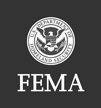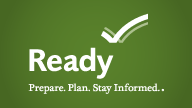Home / Public Safety / Emergency Management
Emergency Management
Grand Traverse Band of Ottawa and Chippewa Indians
Emergency Management
To sign up for Regroup Emergency Alerts Click Here
To view the Public Safety Page Click Here
Grand Traverse Band of Ottawa and Chippewa Indians (GTB) Natural Hazard Mitigation Plan 2024
The Grand Traverse Band of Ottawa and Chippewa Indians has approved Natural Hazard Mitigation Plan in accordance with the Disaster Mitigation Act of 2000. The plan must be updated every 5 years for communities to apply for pre-disaster, hazard mitigation grant funds from FEMA.
Hazards such as climate change, wildfires, severe weather, floods, invasive species, drought, and public health emergencies can have significant impacts on the the built and natural environments, economy, and the health and wellbeing of community members. The natural hazard mitigation plan identifies and reduces the risks presented by these hazards through development of mitigation strategies that build sustainability and resiliency in communities.
To view GTB Natural Hazard Mitigation Plan 2024 GTB Natural Hazard Mitigation Plan 2024
For more information, go to Networks Northwest: https://bit.ly/GTBHM_NN
GTB Natural Hazard Mitigation Plan 2024 - Northwest Networks Here: https://bit.ly/GTBHM_NN
The Grand Traverse Band (GTB) Emergency Management Office is located in the Medicine Lodge at
2300 N. Stallman Road, Peshawbestown, MI 49682
The GTB Tribal Emergency Management Office works on emergency preparedness initiatives for the Tribal Government. The Tribal Emergency Management Office works collaboratively with Leelanau County 911 Center on tribal, county and state of emergency events for Leelanau County as well as cooperates with surrounding counties of Antrim, Benzie, Charlevoix, Grand Traverse, and Manistee counties on emergency preparedness.
The Tribal Emergency Operations Center (EOC) is not staffed on a full-time basis but will open periodically for simulated exercises as well as real events that occur within Peshawbestown. During these events the EOC will be staffed by representatives from tribal and local organizations to collaborate on real time events. The goal of GTB Emergency Management Office is to work collaboratively with local county Emergency Management Offices on preparedness initiatives for each area of Antrim, Benzie, Charlevoix, Grand Traverse, Leelanau and Manistee counties and surrounding counties in the northwest region of Lower Peninsula of Michigan. GTB Emergency Management Office collaborates with GTB Tribal Government Departments to prepare for natural and man-made disasters through exercises and trainings and continually updating GTB Emergency Operations Plans.
Every county has links to Emergency Management information to assist citizens to better prepare themselves for inclement weather conditions, unexpected emergencies or disaster location of emergency shelters in those counties. The Grand Traverse Band has six emergency shelter locations for Peshawbestown, Antrim, Benzie and Charlevoix. (See GTB Tornado Shelter Locations link listed below). For additional emergency preparedness information for Community and Family Preparedness click on website links to assist community members to plan for family emergencies and weather related events. Indian Country Ready.gov or FEMA.gov has links to Severe Weather sites: Tornados, other Natural Disasters and general emergency guidelines.
Emergency Preparedness Website Resources:
- Michigan MiReady.gov https://www.michigan.gov/miready
- Ready.gov https://www.ready.gov/
- CDC website: https://www.cdc.gov/emergency/index.html
- National Weather Service https://www.weather.gov/
- Michigan National Weather Service https://www.weather.gov/apx/
- FEMA Emergency Preparedness website: https://www.fema.gov/
GTB Tornado Shelter Locations

Contact Information:
Grand Traverse Band of Ottawa and Chippewa Indians
Emergency Management Office (231) 534-7111
2300 N. Stallman Rd., Peshawbestown, MI 49682


